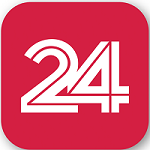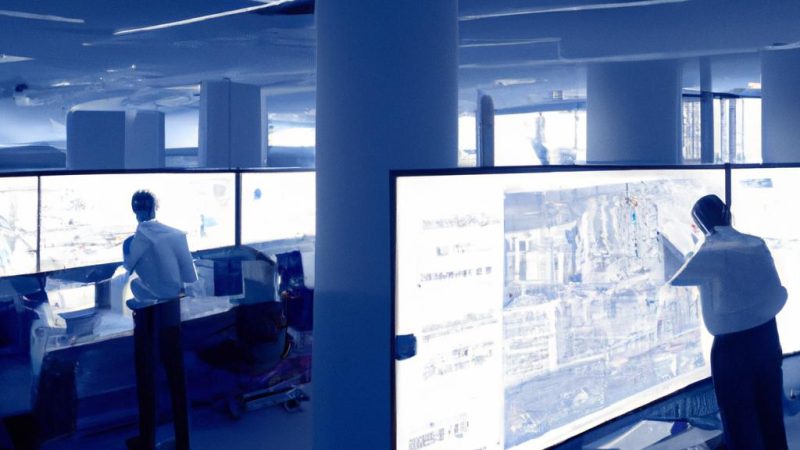ERP Software for Retail: Boosting Efficiency and Success
In today’s fast-paced retail industry, staying ahead of the competition requires efficient and streamlined operations. This is where erp software for retail comes into play. But what exactly is ERP software, and why is it essential for retailers like you and me?
Defining ERP Software for Retail
ERP stands for Enterprise Resource Planning, which refers to a comprehensive software solution designed to integrate various business processes and functions within an organization. In the retail sector, ERP software serves as a central hub that connects inventory management, sales, customer relationship management, and more.
Unlocking the Benefits and Features
Now, you might be wondering, what can ERP software do for your retail business? Let’s explore the key benefits and features that make it an indispensable tool in today’s competitive market.
First and foremost, ERP software enables efficient inventory management and tracking. With real-time visibility into stock levels, you can optimize inventory, reduce wastage, and ensure products are readily available when customers demand them.
Furthermore, ERP software seamlessly integrates with your Point of Sale (POS) system, enabling smooth transactions and accurate record-keeping. This integration enhances the customer experience and enables comprehensive sales reporting and analysis.
Another critical feature of ERP software for retail is its Customer Relationship Management (CRM) capabilities. By centralizing customer data, you can gain valuable insights into their preferences, purchase history, and communication interactions. This enables personalized marketing campaigns, improved customer service, and ultimately, increased customer satisfaction and loyalty.
But that’s not all! ERP software also empowers retailers with efficient order management and fulfillment processes. From order placement to delivery, you can track and manage every step, ensuring timely and accurate order fulfillment.
Finally, ERP software provides robust reporting and analytics tools. By analyzing sales trends, inventory turnover, and other vital metrics, you can make data-driven decisions, identify opportunities for growth, and stay ahead of the competition.
In the next section, we will delve deeper into the numerous benefits that ERP software brings to the table. Stay tuned as we explore how ERP software can revolutionize your retail business, boosting efficiency, and driving success.
Key Features of ERP Software for Retail
In the retail industry, ERP software offers a multitude of features that can transform the way you manage your business. Let’s delve into some of the key features that make ERP software a game-changer for retailers like yourself:
A. Inventory Management and Tracking
Efficient inventory management is vital for any retail business. ERP software provides robust tools to track and manage your inventory in real-time. With automated stock updates, accurate demand forecasting, and intelligent replenishment suggestions, you can optimize inventory levels, reduce holding costs, and prevent stockouts.
B. Point of Sale (POS) Integration
Seamless integration between your ERP software and POS system is crucial for smooth operations. By integrating these systems, you can ensure accurate and efficient sales transactions, seamless inventory updates, and streamlined financial reporting. This integration enables you to provide exceptional customer experiences, with quick and accurate checkouts.
C. Customer Relationship Management (CRM)
Building strong relationships with your customers is the key to long-term success. ERP software includes CRM functionality, allowing you to centralize customer data, track interactions, and gain insights into customer preferences and behaviors. With this information at your fingertips, you can personalize marketing efforts, improve customer service, and foster loyalty.
D. Order Management and Fulfillment
Efficient order management and fulfillment are critical for customer satisfaction. ERP software streamlines the entire order process, from placement to delivery. Through automated workflows, you can manage orders, track their status, and ensure accurate and timely fulfillment. This feature minimizes errors, reduces order processing time, and enhances the overall customer experience.
E. Reporting and Analytics
Data-driven decision-making is essential for retail success. ERP software provides powerful reporting and analytics tools, enabling you to extract valuable insights from your sales, inventory, and financial data. With customizable dashboards and reports, you can monitor key performance indicators, identify trends, and make informed decisions to drive growth and profitability.
F. Integration with E-commerce Platforms
In today’s digital age, having a strong online presence is crucial for retailers. ERP software seamlessly integrates with popular e-commerce platforms, allowing you to manage your online sales, inventory, and customer data from a centralized system. This integration eliminates manual data entry, streamlines operations, and ensures consistency across all sales channels.
These key features of ERP software empower retailers to streamline their operations, enhance customer experiences, and drive business growth. In the following section, we will explore the myriad benefits that ERP software brings to retail businesses. Stay tuned to discover how ERP software can revolutionize your retail operations and help you stay ahead of the competition.
Benefits of ERP Software for Retail
In the fiercely competitive retail industry, every advantage counts. Implementing ERP software can provide a multitude of benefits that can transform your retail business and propel it towards success.
Streamlined Operations and Improved Efficiency
One of the primary benefits of ERP software for retail is the streamlining of operations and the subsequent improvement in overall efficiency. By integrating various business processes, such as inventory management, sales, and financials, ERP software eliminates repetitive tasks and manual data entry. This automation not only saves time but also reduces the risk of human error, allowing your team to focus on more critical tasks.
Enhanced Inventory Control and Optimization
Maintaining optimal inventory levels is crucial for retail success. ERP software empowers you with real-time visibility into your inventory, enabling you to track stock levels, monitor product performance, and identify slow-moving items. With this data at your fingertips, you can make informed decisions about inventory replenishment, eliminating stockouts and reducing carrying costs.
Centralized Data Management and Real-time Visibility
Gone are the days of scattered data across different systems and spreadsheets. ERP software centralizes your data, providing a single source of truth for your business. This centralized approach ensures data accuracy and integrity while allowing authorized personnel to access up-to-date information in real-time. Whether it’s sales figures, customer data, or financial records, having instant access to critical information enables better decision-making and faster response times.
Improved Customer Experience and Satisfaction
In today’s customer-centric world, delivering an exceptional experience is paramount. ERP software equips you with the tools to enhance customer satisfaction. By integrating CRM functionalities, you can capture and analyze customer data, enabling personalized marketing campaigns, targeted promotions, and improved customer service. This level of personalization cultivates stronger customer relationships, leading to increased loyalty and repeat business.
Accurate Forecasting and Demand Planning
Anticipating customer demand and accurately forecasting sales are vital for retail success. ERP software provides robust reporting and analytics capabilities, allowing you to analyze historical data, identify trends, and predict future demand. Armed with this information, you can optimize your inventory, plan promotions, and ensure you have the right products in stock when your customers need them.
Increased Profitability and Cost Savings
At the end of the day, every retail business aims to maximize profitability and reduce costs. ERP software can help achieve this goal by optimizing various aspects of your operations. From reducing inventory holding costs to streamlining procurement processes, ERP software identifies inefficiencies and suggests improvements. Additionally, accurate demand forecasting and optimized inventory levels minimize stockouts and overstock situations, ultimately improving your bottom line.
In the next section, we will dive into the factors you should consider when selecting an ERP software solution for your retail business. Stay tuned as we guide you through the critical aspects to make an informed decision.
Factors to Consider When Choosing ERP Software for Retail
When it comes to selecting the right ERP software for your retail business, several crucial factors must be taken into consideration. Let’s explore these factors to ensure you make an informed decision that aligns with your unique requirements and goals.
1. Scalability and Flexibility
As your retail business grows, so will your operational needs. Therefore, it’s vital to choose an ERP software solution that offers scalability and flexibility. Consider whether the software can handle an increasing number of transactions, support multiple store locations, and accommodate future expansion.
2. Integration Capabilities with Existing Systems
Efficient integration with your existing systems is paramount when implementing ERP software. Evaluate whether the software seamlessly integrates with your current infrastructure, including POS systems, e-commerce platforms, and other critical software. Smooth integration ensures data accuracy, reduces manual efforts, and enhances overall operational efficiency.
3. Customization Options
Every retail business operates differently, and your ERP software should be able to adapt to your unique workflows and processes. Look for a solution that offers customization options, allowing you to tailor the software to meet your specific needs. This flexibility ensures that the software aligns perfectly with your business requirements, optimizing efficiency and productivity.
4. User-Friendliness and Ease of Implementation
Implementing a new software system can be a complex process, but it doesn’t have to be. Evaluate the user-friendliness and ease of implementation of the ERP software you are considering. A user-friendly interface and intuitive navigation can significantly reduce training time for your team and ensure a smooth transition to the new system.
5. Vendor Reputation and Support Services
Choosing a reputable ERP software vendor is crucial to the success of your implementation. Research the vendor’s reputation, read customer reviews, and assess their track record in the retail industry. Additionally, consider the level of support services they offer, including training, ongoing technical support, and software updates. A reliable vendor will provide the necessary assistance to ensure your ERP software operates seamlessly.
6. Cost Considerations
While cost should not be the sole determining factor, it is essential to consider your budget when choosing ERP software. Evaluate the pricing structure, including licensing fees, implementation costs, ongoing maintenance, and potential customization expenses. It’s crucial to find a balance between your budget and the features and benefits the ERP software offers.
By thoroughly considering these factors, you can select an ERP software solution that not only meets your current needs but also sets your retail business up for long-term success. Stay tuned as we explore real-life case studies of successful ERP software implementation in the retail industry.
Case Studies: Successful Implementation of ERP Software in Retail
In this section, we will explore real-life examples of how ERP software has revolutionized retail operations. These case studies demonstrate the tangible benefits that retailers have achieved through the successful adoption of ERP software.
Example 1: Retail company X achieves significant operational improvements through ERP software adoption
Retail company X, a leading player in the industry, faced challenges in managing their vast inventory across multiple locations. They decided to implement ERP software to streamline their operations and gain better control over their inventory.
By integrating their inventory management, sales, and order fulfillment processes using ERP software, company X experienced significant operational improvements. They were able to optimize their inventory levels, reduce stockouts, and minimize overstocking, resulting in improved cash flow and reduced carrying costs.
Moreover, the centralized data management capabilities of the ERP software provided real-time visibility into their inventory, allowing company X to make data-driven decisions and respond swiftly to changing market demands. This resulted in enhanced operational efficiency and improved customer satisfaction.
Example 2: How ERP software transformed the inventory management of retail company Y
Retail company Y, a small but growing business, struggled with inefficient inventory management processes. They were constantly faced with stock discrepancies, delayed order fulfillment, and dissatisfied customers.
Recognizing the need for a solution, company Y implemented ERP software to streamline their inventory management. The ERP software enabled them to track inventory levels accurately, automate replenishment processes, and establish efficient stock rotation strategies.
As a result, company Y experienced a remarkable transformation in their inventory management. They reduced stock discrepancies by 80%, significantly improved order fulfillment time, and enhanced overall inventory accuracy. The ERP software empowered them to optimize their inventory levels, reduce carrying costs, and ensure products were always available when customers needed them.
Example 3: Retailer Z enhances customer satisfaction with ERP software integration
Retailer Z, a customer-centric business, wanted to improve their customer satisfaction levels. They recognized the need for a robust CRM system to gain a deeper understanding of their customers’ preferences and provide personalized experiences.
By integrating ERP software with their CRM system, retailer Z achieved a holistic view of their customers’ buying behavior, preferences, and interactions. This allowed them to create targeted marketing campaigns, offer personalized recommendations, and provide exceptional customer service.
As a result, retailer Z witnessed a significant increase in customer satisfaction and loyalty. Customers appreciated the personalized experiences and felt valued, leading to repeat purchases and positive word-of-mouth referrals.
These case studies exemplify how ERP software can be a game-changer for retailers, regardless of their size or industry. In the next section, we will delve into the factors you should consider when choosing the right ERP software for your retail business.
Conclusion
In conclusion, ERP software for retail is an indispensable tool that can revolutionize your business operations and drive success. By integrating various functions and processes, ERP software streamlines operations, enhances inventory control, and improves overall efficiency.
With ERP software, you gain real-time visibility into your inventory, enabling you to optimize stock levels, reduce wastage, and meet customer demands promptly. The seamless integration with your POS system ensures smooth transactions and accurate sales record-keeping, enhancing the overall customer experience.
Furthermore, ERP software’s CRM capabilities centralize customer data, allowing you to personalize marketing campaigns and provide exceptional customer service. By leveraging valuable insights into customer preferences and purchase history, you can foster loyalty and satisfaction.
Efficient order management and fulfillment processes are also made possible with ERP software. From order placement to delivery, you can track and manage every step, ensuring timely and accurate order fulfillment.
Moreover, ERP software offers robust reporting and analytics tools, empowering you to make data-driven decisions for your retail business. By analyzing sales trends, inventory turnover, and other key metrics, you can identify growth opportunities and stay ahead of the competition.
In today’s competitive retail landscape, selecting the right ERP software solution is crucial. It provides scalable and flexible options, integrates seamlessly with existing systems, and offers customization and user-friendly features. Consider the reputation and support services of vendors, along with cost considerations, to make an informed decision.
As we conclude, it’s clear that ERP software for retail is a game-changer. To take your business to new heights, embrace ERP software and witness the remarkable improvements in efficiency, customer satisfaction, and profitability.
For more information and to explore the best ERP software solutions for your retail business, visit erp.deptuoi30.com. Empower your retail business with the right ERP software and unlock its full potential today.



